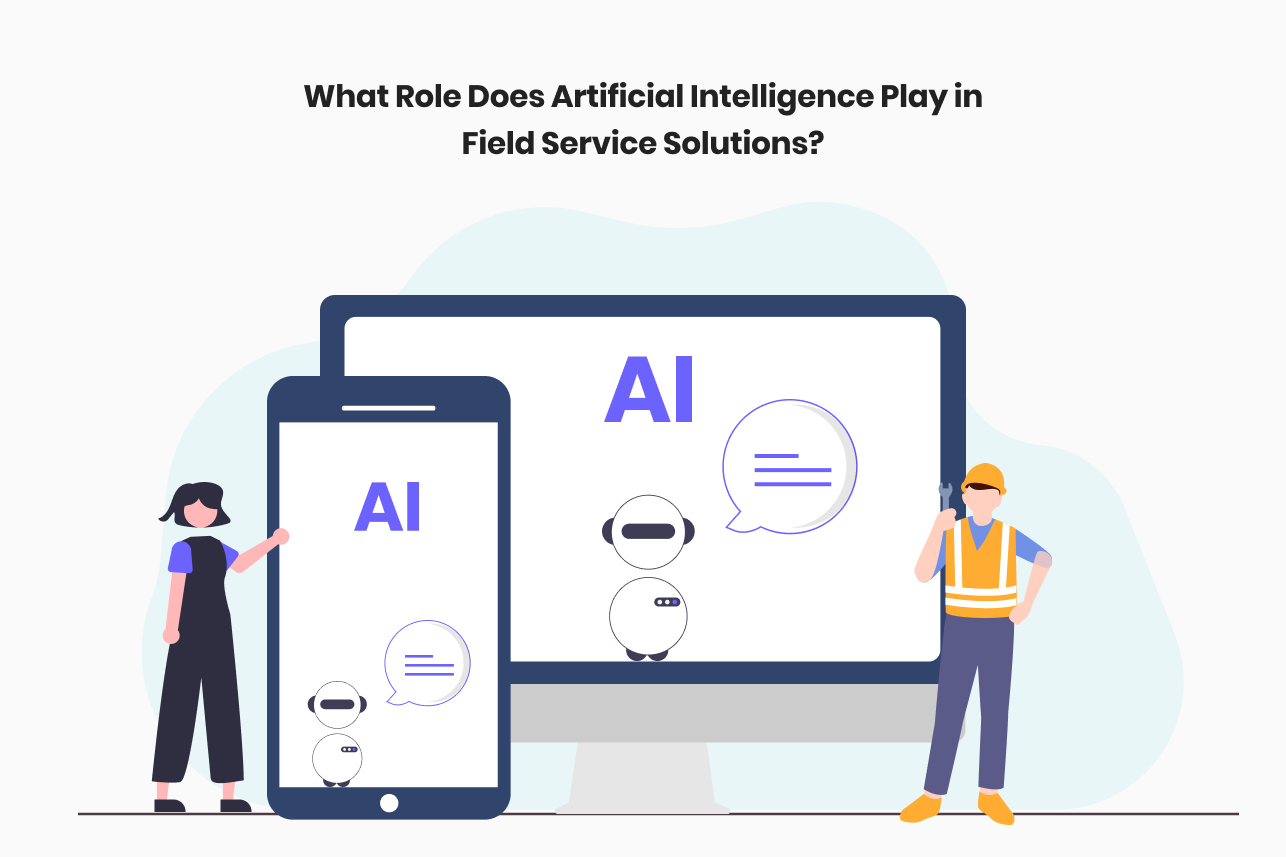Artificial Intelligence (AI) plays a significant role in enhancing and optimizing field service solutions across various industries. Here are several ways AI contributes to field service management:
- Predictive Maintenance:
- AI algorithms analyze historical data and sensor information to predict when equipment is likely to fail.
- By predicting maintenance needs, organizations can schedule repairs or replacements proactively, minimizing downtime and reducing overall maintenance costs.
- Optimized Scheduling and Routing:
- AI helps in optimizing field service schedules by considering various factors like technician skills, location, traffic conditions, and service priorities.
- Efficient scheduling and routing lead to reduced travel time, improved on-time arrivals, and increased overall productivity.
- Remote Assistance and Diagnostics:
- AI-powered remote assistance tools enable technicians to troubleshoot and diagnose issues from a distance.
- Real-time collaboration using augmented reality (AR) or virtual reality (VR) can guide on-site technicians through complex tasks, improving first-time fix rates.
- Automation of Routine Tasks:
- AI automates repetitive and routine tasks, allowing field service professionals to focus on more complex and value-added activities.
- This includes automating data entry, dispatching, and other administrative processes.
- Customer Experience Enhancement:
- AI-driven chatbots and virtual assistants provide instant customer support and information, improving communication and responsiveness.
- Predictive analytics can help anticipate customer needs and offer personalized service, enhancing overall customer satisfaction.
- Inventory Management:
- AI helps in optimizing inventory levels by analyzing usage patterns, demand forecasting, and other relevant factors.
- This ensures that technicians have the right parts and equipment on hand, minimizing delays and improving service efficiency.
- Data Analytics for Decision-Making:
- AI analyzes vast amounts of data generated by field service operations to identify patterns, trends, and insights.
- These insights aid in better decision-making, resource allocation, and continuous improvement of field service processes.
- Machine Learning for Continuous Improvement:
- Machine learning algorithms can continuously learn from new data, refining and improving predictions and recommendations over time.
- This adaptive learning helps organizations stay agile and responsive to changing conditions.
- Cost Reduction and Efficiency Improvement:
- By automating processes, optimizing schedules, and reducing downtime through predictive maintenance, AI contributes to overall cost reduction and operational efficiency.
- By automating processes, optimizing schedules, and reducing downtime through predictive maintenance, AI contributes to overall cost reduction and operational efficiency.
In summary, AI in field service solutions enhances operational efficiency, reduces costs, improves customer satisfaction, and enables organizations to deliver more proactive and responsive services. It is a key enabler for modernizing and streamlining field service management processes.
